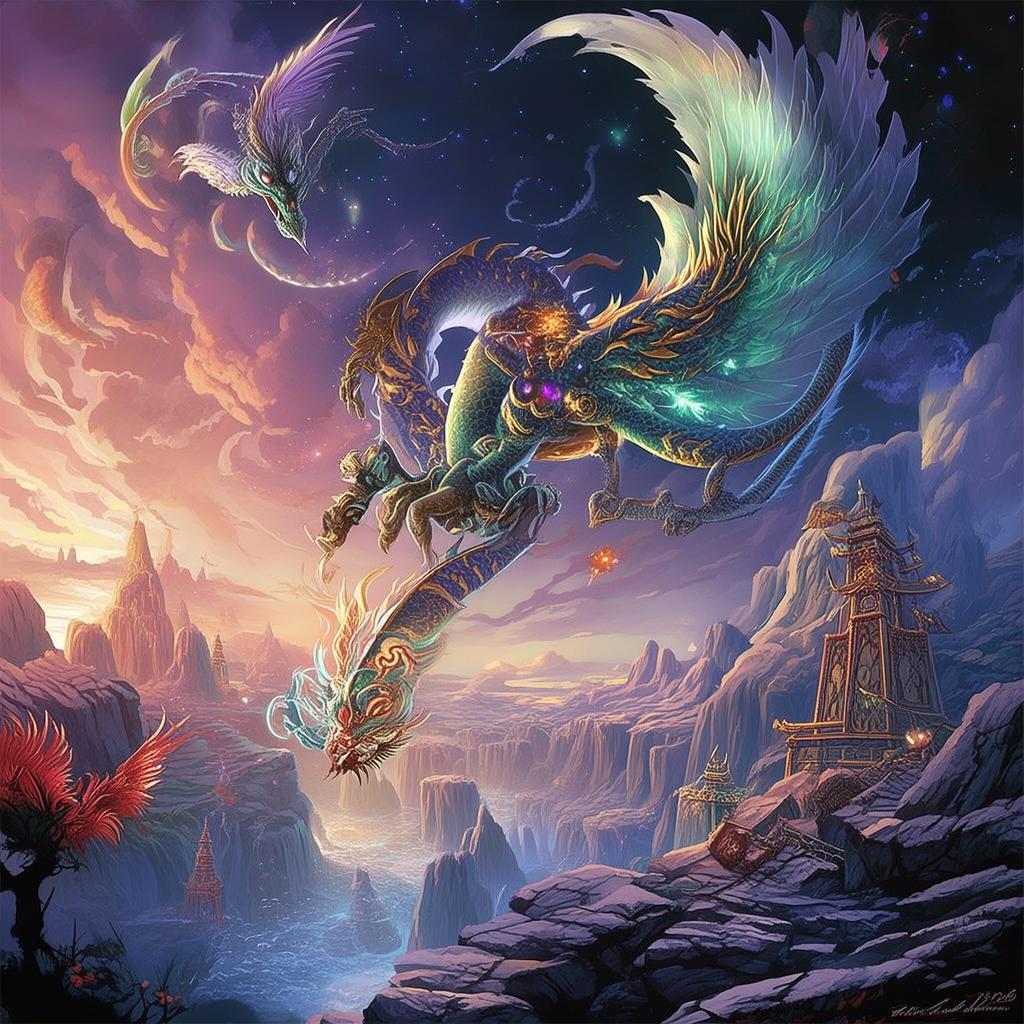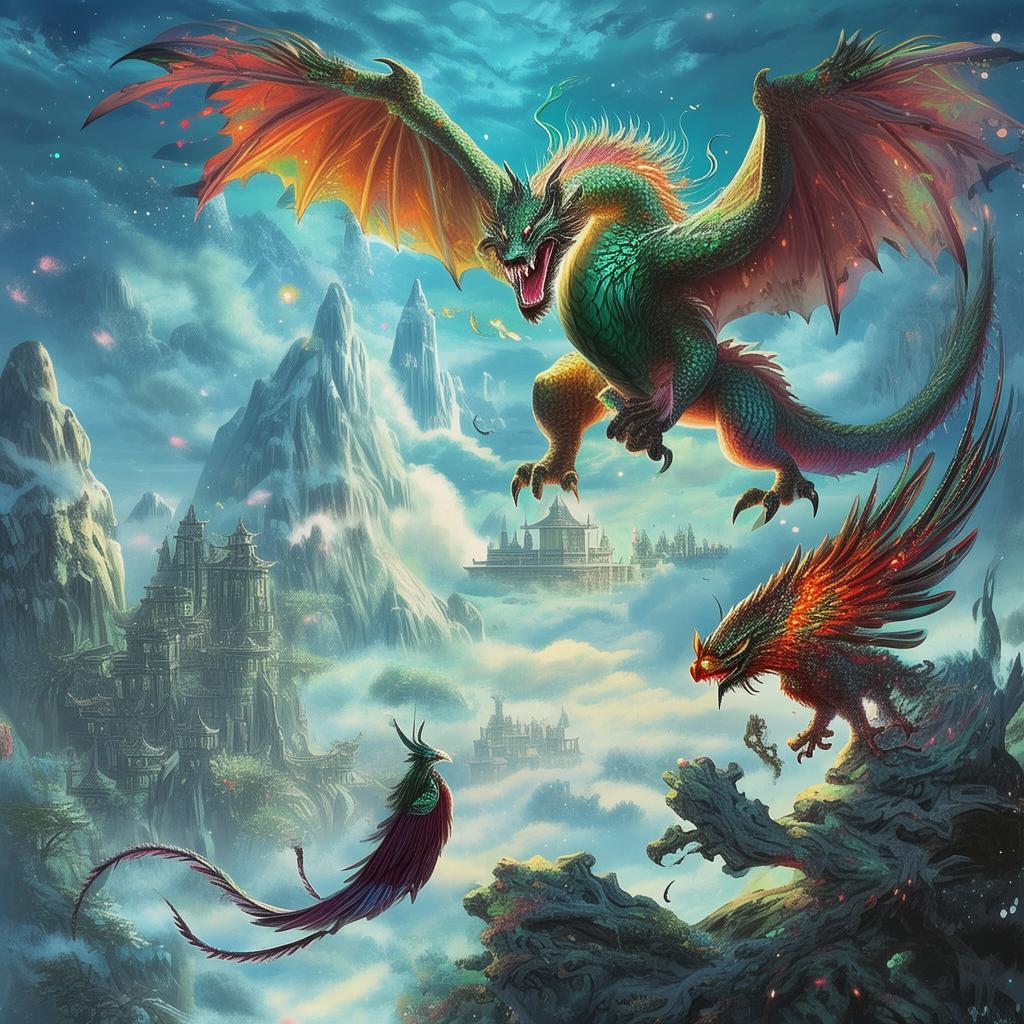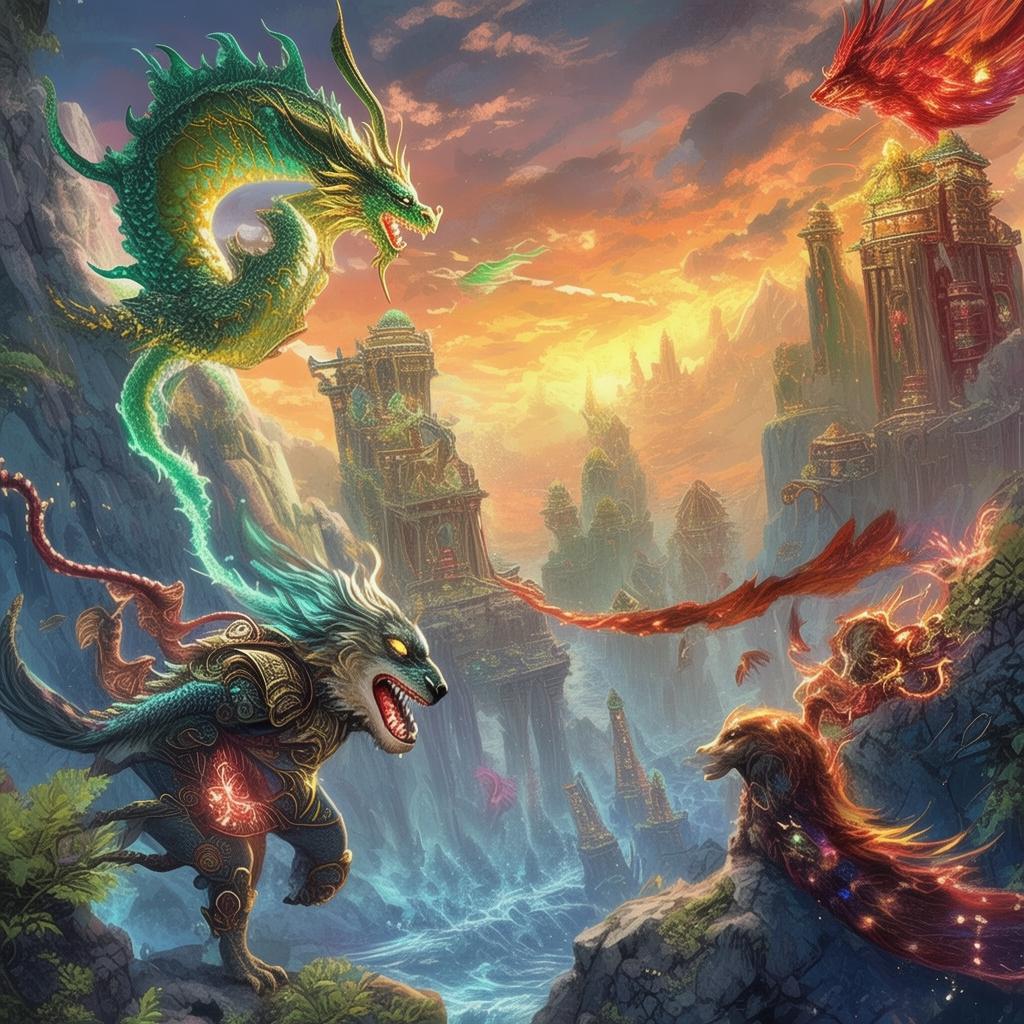The Labyrinth of the Mind: The Enigma of the Mountain and Sea
In the ancient land of Qin, nestled between towering mountains and the vast sea, there lay a library known as the Labyrinth of the Mind. It was said that within its walls, the wisdom of the ages was preserved, encoded in the mystical texts of the Mountain and Sea. These texts, believed to be the offspring of the divine, contained the essence of reality and illusion, the balance of the cosmos, and the keys to understanding the enigma of existence.
Jingli, a young scribe with a penchant for the arcane, had spent years studying the teachings of the sages. His thirst for knowledge was unquenchable, and he had heard whispers of the Labyrinth of the Mind from the elders. They spoke of a journey that would challenge his mind, test his resolve, and ultimately reveal the truth behind the fabric of reality.
The day of his departure arrived, and Jingli set out on a journey that would span ten days. He carried with him a scroll of the Mountain and Sea, a guide to his quest. The scroll was said to contain the riddles of the ancient texts, but it was also a source of delusion. Many before him had embarked on the journey, only to be lost in the labyrinth of their own minds.
On the first day, Jingli reached the entrance of the Labyrinth. The door was a massive stone slab, inscribed with symbols that seemed to dance and flicker in the light. He took a deep breath and pushed the door open, stepping into the unknown.
The labyrinth was a maze of corridors and rooms, each more twisted and perplexing than the last. The air was thick with the scent of ancient parchment and the hum of forgotten knowledge. Jingli's mind began to wander, and he felt the pull of the scroll's delusion.
He came upon a room with walls adorned with paintings of mountains and seas. Each painting seemed to shift and change, and he found himself standing on the edge of a cliff overlooking a turbulent sea. The wind howled, and he felt the icy waves crashing against his legs. He reached out to steady himself, but his hand passed through the cliff, and he fell into the abyss.
The scroll's delusion had taken hold, and Jingli was lost in the illusion of falling. He tried to scream, but no sound emerged. The delusion was a trap, designed to ensnare the unwary and consume them in the labyrinth of their own minds.
Desperate to escape, Jingli sought the guidance of the scroll. He read the riddles and tried to decipher the symbols, but the more he delved into the text, the more entangled he became in the delusion. The room began to spin, and he felt himself being pulled into the vortex of the scroll's power.
Just as he was about to succumb to the delusion, a voice echoed in his mind, "The key to the labyrinth lies not in the scroll, but in the heart."
Jingli paused, reflecting on the words. He realized that the scroll was a tool, not a guide. It was his mind that needed to be the key to unlocking the enigma of the Mountain and Sea.
With newfound clarity, Jingli stepped back from the delusion and began to explore the labyrinth with a new perspective. He noticed the intricate patterns on the walls, the symbols that seemed to tell a story. He saw the mountains and seas not as illusions, but as metaphors for the journey he was on.

The labyrinth revealed itself to be a reflection of the mind, a place where the boundaries between reality and illusion were blurred. Jingli understood that the journey was not just about deciphering the ancient texts, but about understanding himself and the nature of existence.
On the tenth day, as the sun set over the labyrinth, Jingli reached the center of the maze. There, he found a chamber with a single door, inscribed with the same symbols he had seen at the entrance. He placed his hand on the door, and it opened to reveal a vast library, filled with shelves of scrolls and books.
Jingli stepped inside, feeling a sense of peace wash over him. He had overcome the delusion of the scroll and the labyrinth of his mind. He had come to understand that the journey was not about seeking answers, but about the journey itself.
As he wandered through the library, he found a scroll titled "The Enigma of the Mountain and Sea." He unrolled it and read the final words, "The truth is not in the text, but in the journey."
Jingli smiled, knowing that the labyrinth of the mind was a metaphor for the journey of self-discovery. He had faced the delusions within himself and emerged stronger, wiser, and ready to continue his quest for knowledge.
And so, the young scribe left the Labyrinth of the Mind, carrying with him the wisdom he had gained and the realization that the true enigma lay not in the scrolls, but in the journey of life itself.
✨ Original Statement ✨
All articles published on this website (including but not limited to text, images, videos, and other content) are original or authorized for reposting and are protected by relevant laws. Without the explicit written permission of this website, no individual or organization may copy, modify, repost, or use the content for commercial purposes.
If you need to quote or cooperate, please contact this site for authorization. We reserve the right to pursue legal responsibility for any unauthorized use.
Hereby declared.









